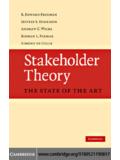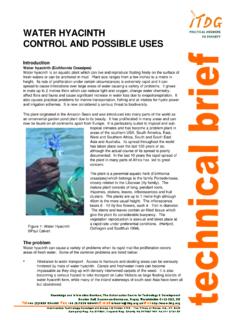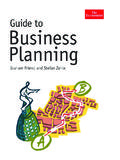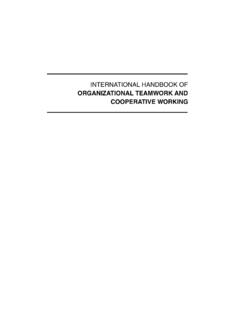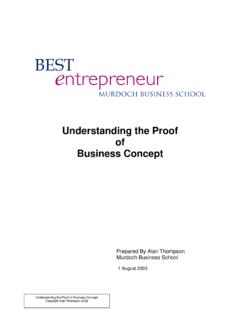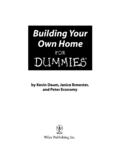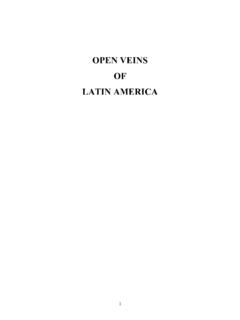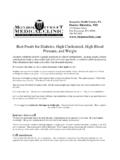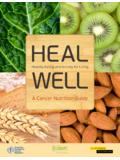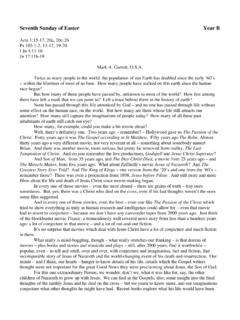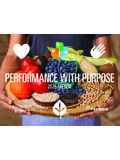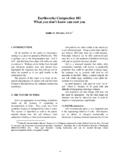Transcription of Lierre Keith - United Diversity
1 TheVegetarian Myth food, justice, and sustainability Lierre Keith PM PRESS. BOX 23912, OAKLAND, CA 94623. Also by Lierre Keith : Conditions of War Skyler Gabriel Also from Flashpoint Press: Now This War Has Two Sides A spoken word CD set by Derrick Jensen Lives Less Valuable A novel by Derrick Jensen Songs of the Dead A novel by Derrick Jensen How Shall I Live My Life? Interviews by Derrick Jensen The Day Philosophy Died A Novel by Casey Maddox TheVegetarian Myth food, justice, and sustainability Lierre Keith PM PRESS. BOX 23912, OAKLAND, CA 94623. Copyright 2009 by Lierre Keith A Flashpoint Press First Edition All rights reserved. No part of this book may be reproduced, stored in a retrieval system, or transmitted in any form, by any means, including mechanical, electric, photocopying, recording or otherwise, without the prior written permission of the publisher.
2 Flashpoint Press PO Box 903. Crescent City, CA 95531. Library of Congress Control Number: 2009921671. Book design by Aric McBay Printed in the USA. 9781604860801. To Annemarie Monahan, one of my favourite animals, and in memory of Terry Lotz. Contents Why This Book?.. 1. Moral 13. Political 95. Nutritional 139. To Save the 245. 273. 275. 277. 281. 297. About the 316. CHAPTER 1. Why This Book? This was not an easy book to write. For many of you, it won't be an easy book to read. I know. I was a vegan for almost twenty years. I know the reasons that compelled me to embrace an extreme diet and they are honorable, ennobling even. Reasons like justice, compassion, a desperate and all-encompassing longing to set the world right. To save the planet the last trees bearing witness to ages, the scraps of wilderness still nurturing fading species, silent in their fur and feathers.
3 To protect the vulnerable, the voiceless. To feed the hungry. At the very least to refrain from participating in the hor- ror of factory farming. These political passions are born of a hunger so deep that it touches on the spiritual. Or they were for me, and they still are. I. want my life to be a battle cry, a war zone, an arrow pointed and loosed into the heart of domination: patriarchy, imperialism, indus- trialization, every system of power and sadism. If the martial imagery alienates you, I can rephrase it. I want my life my body to be a place where the earth is cherished, not devoured; where the sadist is granted no quarter; where the violence stops. And I want eating the first nurturance to be an act that sustains instead of kills.
4 This book is written to further those passions, that hunger. It is not an attempt to mock the concept of animal rights or to sneer at 2 The Vegetarian Myth the people who want a gentler world. Instead, this book is an effort to honor our deepest longings for a just world. And those longings . for compassion, for sustainability, for an equitable distribution of resources are not served by the philosophy or practice of vegetarian- ism. We have been led astray. The vegetarian Pied Pipers have the best of intentions. I'll state right now what I'll be repeating later: every- thing they say about factory farming is true. It is cruel, wasteful, and destructive. Nothing in this book is meant to excuse or promote the practices of industrial food production on any level.
5 But the first mistake is in assuming that factory farming a practice that is barely fifty years old is the only way to raise ani- mals. Their calculations on energy used, calories consumed, humans unfed, are all based on the notion that animals eat grain. You can feed grain to animals, but it is not the diet for which they were designed. Grain didn't exist until humans domesticated annual grasses, at most 12,000 years ago, while aurochs, the wild progenitors of the domestic cow, were around for two million years before that. For most of human history, browsers and graz- ers haven't been in competition with humans. They ate what we couldn't eat cellulose and turned it into what we could protein and fat. Grain will dramatically increase the growth rate of beef cattle (there's a reason for the expression cornfed ) and the milk production of dairy cows.
6 It will also kill them. The delicate bacte- rial balance of a cow's rumen will go acid and turn septic. Chickens get fatty liver disease if fed grain exclusively, and they don't need any grain to survive. Sheep and goats, also ruminants, should really never touch the stuff. This misunderstanding is born of ignorance, an ignorance that runs the length and breadth of the vegetarian myth, through the nature of agriculture and ending in the nature of life. We are ur- ban industrialists, and we don't know the origins of our food. This includes vegetarians, despite their claims to the truth . It included me, too, for twenty years. Anyone who ate meat was in denial; only I had faced the facts. Certainly, most people who consume factory- farmed meat have never asked what died and how it died.
7 But frankly, neither have most vegetarians. Why This Book? 3. The truth is that agriculture is the most destructive thing humans have done to the planet, and more of the same won't save us. The truth is that agriculture requires the wholesale destruction of entire ecosystems. The truth is also that life isn't possible without death, that no matter what you eat, someone has to die to feed you. I want a full accounting, an accounting that goes way beyond what's dead on your plate. I'm asking about everything that died in the process, everything that was killed to get that food onto your plate. That's the more radical question, and it's the only question that will produce the truth . How many rivers were dammed and drained, how many prairies plowed and forests pulled down, how much topsoil turned to dust and blown into ghosts?
8 I want to know about all the species not just the individuals, but the entire species the chinook, the bison, the grasshopper sparrows, the grey wolves. And I. want more than just the number of dead and gone. I want them back. Despite what you've been told, and despite the earnestness of the tellers, eating soybeans isn't going to bring them back. Ninety-eight percent of the American prairie is gone, turned into a monocrop of annual grains. Plough cropping in Canada has destroyed 99 percent of the original In fact, the disappearance of topsoil rivals global warming as an environmental threat. 2 When the rainforest falls to beef, progressives are outraged, aware, ready to boycott. But our attachment to the vegetarian myth leaves us uneasy, silent, and ultimately immobilized when the culprit is wheat and the victim is the prairie.
9 We embraced as an article of faith that vegetarianism was the way to salvation, for us, for the planet. How could it be destroy- ing either? We have to be willing to face the answer. What's looming in the shadows of our ignorance and denial is a critique of civilization itself. The starting point may be what we eat, but the end is an entire way of life, a global arrangement of power, and no small measure of personal attachment to it. I remember the day in fourth grade when Miss Fox wrote two words on the blackboard: civilization and agriculture. I. remember because of the hush in her voice, the gravitas of her words, the explanation that was almost oratory. This was Important. And I. understood. Everything that was good in human culture flowed from 4 The Vegetarian Myth this point: all ease, grace, justice.
10 Religion, science, medicine, art were born, and the endless struggle against starvation, disease, violence could be won, all because humans figured out how to grow their own food. The reality is that agriculture has created a net loss for human rights and culture: slavery, imperialism, militarism, class divisions, chronic hunger, and disease. The real problem, then, is not to explain why some people were slow to adopt agriculture but why anybody took it up at all, when it is so obviously beastly, writes Co- lin Tudge of The London School of Agriculture has also been devastating to the other creatures with whom we share the earth, and ultimately to the life support systems of the planet itself. What is at stake is everything. If we want a sustainable world, we have to be willing to examine the power relations behind the foundational myth of our culture.
